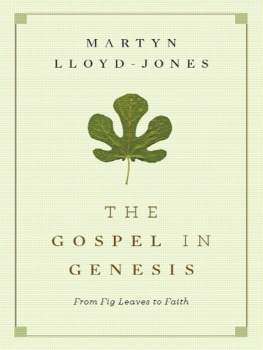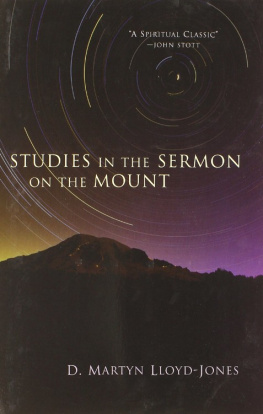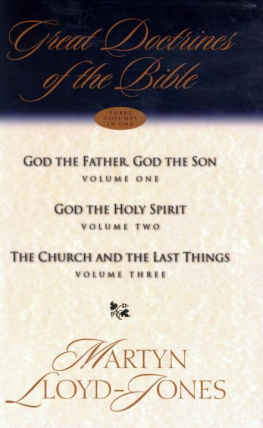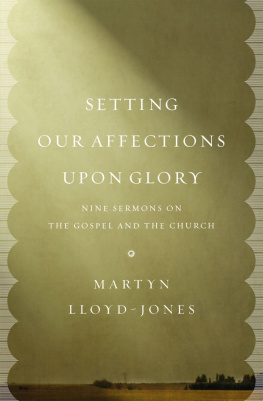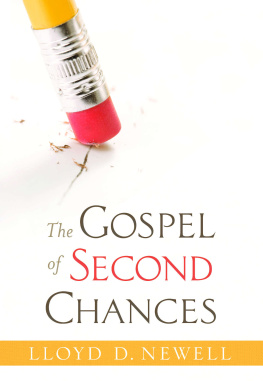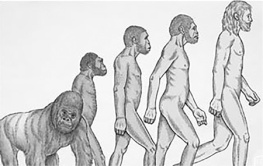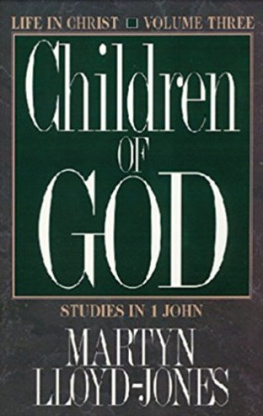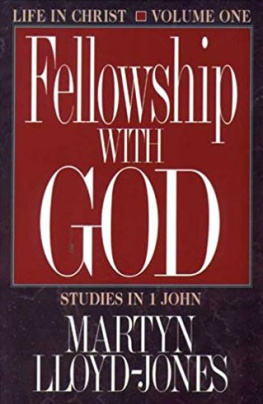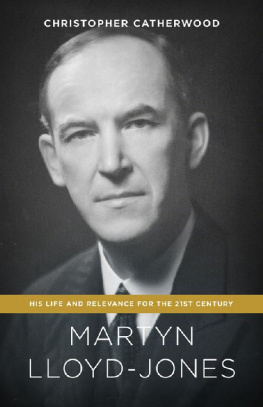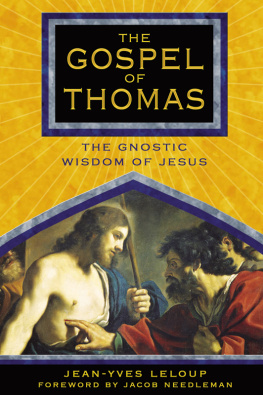THE GOSPEL IN GENESIS
OTHER CROSSWAY BOOKS BY
MARTYN LLOYD-JONES
Alive in Christ
The Cross
The Kingdom of God
My Soul Magnifies the Lord
Out of the Depths
Revival
Seeking the Face of God
True Happiness
Truth Unchanged, Unchanging
Walking with God Day by Day
Why Does God Allow Suffering?
Why Does God Allow War?
Living Water
Let Not Your Heart Be Troubled
GREAT DOCTRINES OF THE BIBLE
Great Doctrines of the Bible (three volumes in one)
LIFE IN CHRIST: STUDIES IN 1 JOHN
Volume 1: Fellowship with God
Volume 2: Walking with God
Volume 3: Children of God
Volume 4: The Love of God
Volume 5: Life in God
Life in Christ (five volumes in one)
STUDIES IN THE BOOK OF ACTS
Volume 1: Authentic Christianity
Volume 2: Courageous Christianity
Volume 3: Victorious Christianity
Volume 4: Glorious Christianity
Volume 5: Triumphant Christianity
Volume 6: Compelling Christianity
STUDIES IN JOHN 17
The Assurance of Our Salvation (four volumes in one)

The Gospel in Genesis
Copyright 2009 by Elizabeth Catherwood and Ann Beatt
Published by Crossway Books
a publishing ministry of Good News Publishers
1300 Crescent Street
Wheaton, Illinois 60187
All rights reserved. No part of this publication may be reproduced, stored in a retrieval system or transmitted in any form by any means, electronic, mechanical, photocopy, recording or otherwise, without the prior permission of the publisher, except as provided for by USA copyright law.
Cover design: Josh Dennis
Cover photo: iStock
First printing, 2009
Printed in the United States of America
All Scripture quotations are taken from the King James Version of the Bible.
All emphases in Scripture quotations have been added by the author.
Trade paperback ISBN: 978-1-4335-0120-3
PDF ISBN: 978-1-4335-1257-5
Mobipocket ISBN: 978-1-4335-1258-2
ePub ISBN: 978-1-4335-2079-2

Library of Congress Cataloging-in-Publication Data
Lloyd-Jones, David Martyn.
The Gospel in Genesis : from fig leaves to faith / Martyn Lloyd-Jones.
p. cm.
Includes bibliographical references.
ISBN: 978-1-4335-0120-3 (tpb)
1. Bible. O.T. GenesisCriticism, interpretation, etc. 2. Bible. O.T. GenesisRelation to the New Testament. I. Title.
BS1235.52.L58 2009
222'.1106dc22 2009011586

VP 18 17 16 15 14 13 12 11 10 09
14 13 12 11 10 9 8 7 6 5 4 3 2 1
CONTENTS
THE MESSAGE OF THE BIBLE

Now the serpent was more subtil than any beast of the fieldwhich the LordGod had made. And he said unto thewoman, Yea, hath God said, Ye shall not eat of every tree ofthe garden?
GENESIS 3:1
I call your attention to Genesis 3 in order that we may consider together the essential message of this book that we call the Bible. In various ways we have felt the need to do so and have felt it to be right.
We are all conscious of problems in this worldproblems in our own personal lives and in the world at large. There is no such thing as complete and perfect happiness. No one is without difficulties. Everyone knows what it is to be weary, to be disappointed, and to struggle. We find conflict within ourselves. We find conflict round and about us. That is the experience of every human being. There is always a fly in the ointment. There is no such thing as unmixed pleasure. We have all discoveredand no matter how young we are, we have discovered thisthat life does involve us in difficulties, in problematical situations. And we have a feeling that we were not meant for this. We do not like it; we want to be delivered from it. That is ultimately the cause of all quests in the lives of men and women. We are all searching for some solution to the problems of life. There are difficulties; there are such things as heart searchings and disappointments; we are all somehow or other seeking for some way out of some impasse.
We are face-to-face, then, with tribulation and trial, with wretchedness and unhappiness, not only in ourselves but in the world at large. We are always being reminded of this. You cannot pick up a newspaper without seeing it. You never hear the news on the radio without being conscious that life is full of perplexities. Quite apart from major world wars, there is always some misuderstanding and discord, people working at cross-purposes, pulling against one another, rivalries, jealousies, sects and parties. The whole world seems to be nothing but a repetition on a grand scale of what we all experience in our personal lives. That is why it has often been said that man is a sort of microcosm. In and of himself, he is a picture of what is true of the whole cosmos. There seems to be this clash, and as the poet has put it, we see Nature, red in tooth and claw. There always seems to be strugglestruggle for existence, struggle for power, struggle for mastery.
That is the situation that we meet together to consider, and that in itself is important because many people still think that religion is purely intellectual. Some insist that this book called the Bible, far from being practical, is really very remote from life. They say, if you are interested in the Bible, you can take it up as you take up any other kind of studymusic, for instance, or literatureas a kind of hobby. It is something that you do in a detached manner, more or less as a spectator, in your leisure time.
Now all that is a complete fallacy, and I want to try to show you what a terrible fallacy it is. Nothing in the world is as practical as the teaching of the Bible. Indeed, the whole purpose of that book is to come to us with its instruction and its enlightenment concerning the very situation in which we find ourselves. That is what it is for. That is what it is about. From that standpoint, it is in a sense the most human book in the world because from beginning to end it deals with men and women. But for that very reason the Bible is a baffling book to many people. They think of it, as I have said, as just some kind of theoretical textbook offering a certain point of view or line of thought.
Now the Bible does contain massive thought, mighty philosophy, exceptional teaching, and yet the whole time it is also a history book. You cannot get away from men and womenAdam and Eve, Cain and Abel, David and other kings, Jesus of Nazareth, apostles with names, Paul, the servant of Jesus Christ. The Bible keeps on putting its truth to us in terms of these peoplewhat they did, what they said, what happened to them, and so on. And it does that, it seems to me, just to bring home to us this very point that I am emphasizingthat it is a practical book about life. It is a textbook of the soul. It comes to us with a message about the very position in which we find ourselves.
So look at the Bible either as an individual or in terms of the world. Are you unhappy? Is that why you are thinking about what I am saying? Well, the Bible talks to you about your unhappiness. The question is, why are you unhappy? What is the cause of your unhappiness? Why should anybody be unhappy? Why should life not be a perpetual holiday? Why do we have to work by the sweat of our brow? Those are the questions with which the Bible deals. Why do things go wrong? Why is there illness and sickness? Why should there be death? These are the major problems of life.
Next page
